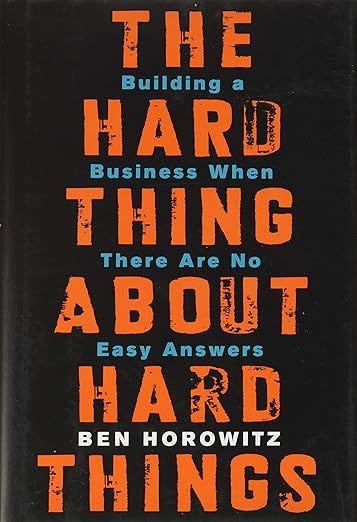#108: Why Stress Can Make Your Team Stronger
Antifragility applied to team dynamics and organizational psychology
👋 Hey, Leo here! Welcome to The Antifragile Leader. Each week, I explain the concepts needed to lead through uncertainty. Subscribe to get every issue in your inbox.
Hey Friends,
Welcome to the 108th edition of this newsletter.
And today I want to talk about stress.
Stress has a bad reputation. It's seen as something to be avoided, minimized, or managed away.
I don’t think you ever heard of someone saying in a cheerful voice: "my life is stressful.”
But what if stress isn't always the enemy? What if it's precisely what your team needs to become stronger?
Today, we'll dive deeper into how antifragility can reshape our understanding of team dynamics and organizational psychology, helping us build more resilient, adaptive, and high-performing teams.
Not all stress is harmful. In fact, there's a critical distinction between distress (negative stress) and eustress (positive stress).
According to Kelly McGonigal, a psychologist and author of The Upside of Stress, eustress enhances creativity, sharpens problem-solving skills, and strengthens team cohesion.
McGonigal's research indicates that moderate stress can improve performance and job satisfaction by motivating team members to engage more deeply in their work.
Similarly, renowned organizational psychologist Richard Hackman's studies highlight that teams that overcome challenging situations together develop stronger bonds and improve their performance. His work suggests that experiencing manageable stress as a unit can build collective resilience and facilitate better teamwork in future tasks.
Google's Project Aristotle aimed to decode what factors make teams most successful. The research concluded that "psychological safety"—the ability for team members to take interpersonal risks without fear of judgment or retribution—was essential. Teams that viewed stress and uncertainty as growth opportunities consistently outperformed those who did not.
Netflix is another powerful example. The company's culture encourages employees to embrace risk and tolerate failure. This proactive stance towards stress and setbacks is central to their ongoing innovation and industry leadership. By openly discussing failures, Netflix fosters a strong culture of learning and antifragility.
Stress can also be a signal for individual performance.
Do you think CEOs or startup founders are stressed? Of course they are.
Most probably, if you have no stress in your day-to-day job, you are not taking any risks. You are playing it safe.
It’s the same with physical stress. You only become stronger if you expose your muscles to “stressors.” In his book Antifragile, Nassim Nicholas Taleb gives a personal example of how stress, when appropriately embraced, can be beneficial. Taleb highlights how moderate physical stress, such as lifting weights, triggers muscle growth by causing minor damage to muscle fibers. Similarly, moderate emotional or psychological stress can stimulate personal growth, resilience, and mental toughness by prompting individuals to adapt and improve their coping mechanisms.
Stress + Rest = Growth
Brad Stulberg, author of Peak Performance, emphasizes the powerful equation: Stress + Rest = Growth. Stulberg argues that stress alone isn’t sufficient for improvement—growth occurs when stress is paired effectively with rest and recovery. This concept, derived from athletic training, also applies to teams and organizational dynamics. Periodic stress challenges teams, and intentional recovery helps solidify these gains, ensuring long-term improvement and preventing burnout.
How to Make Sure Your Team Benefits from Stress
To ensure your team effectively harnesses stress for growth, consider the following strategies:
1. Balance Challenge with Capability
Assign tasks that are challenging yet within the team's skill set, promoting engagement without causing burnout.
Regularly assess workload to maintain a healthy level of pressure.
2. Foster a Growth Mindset
Encourage team members to view stressful situations as opportunities to learn and develop.
Praise effort and adaptability, not just outcomes, to reinforce the value of the learning process.
3. Build Psychological Safety
Ensure team members feel comfortable voicing concerns, admitting mistakes, and taking calculated risks.
Create a supportive environment where stress can be openly discussed and constructively managed.
4. Incorporate Rest and Reflection
Schedule regular periods of rest and reflection, allowing the team to recover and consolidate learning.
Use retrospectives to discuss stress experiences, extract lessons, and plan improvements.
Stress is inevitable, but how we perceive it and how we respond to it is a choice.
As a leader, your job isn’t to eliminate stress but to help your team grow from it.
If you try out any of the ideas from this newsletter, let me know how it goes.
Recommendations:
The Hard Things about Hard Things: I re-read this beauty after 5 years or so, and it didn’t disappoint. When I first read it, I had a vague sense of what building a business means. Now, after doing my MBA and meeting many entrepreneurs, this book made a lot more sense. I see it as a crucial read for everyone who wants to start a business, especially a tech one.
OnStrategy is one of my favorite newsletters and I particularly liked this post detailing Amazon’s approach on Agility and AI.
9 Book Recommendations from one of my favorite authors, the stoic Ryan Holiday.
Thanks for reading.
I hope your team grows stronger after going through a stressful period.
— Leo
P.S. If you enjoyed this piece and want to support my writing, please consider sharing it and becoming a paid subscriber.
Thank you so much for being here!
P.P.S. If you want to read my content daily, don’t forget to follow me on LinkedIn







Non-chronic stress, up to a certain level, is actually highly powerful.
Great post and book recommendations, Leo!
Thanks for sharing #onStrategy, Leo! 👏